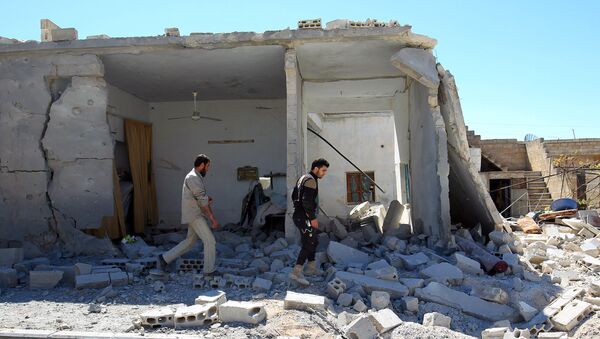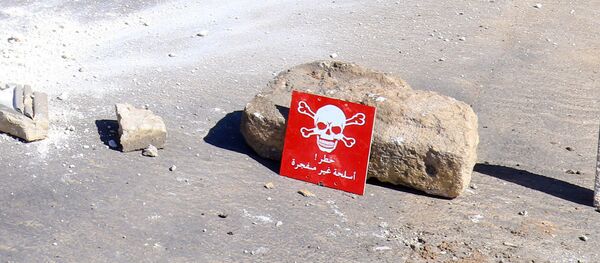On Tuesday, Russian Defense Ministry spokesman Maj. Gen. Igor Konashenkov slammed the allegations, pointing out that there has been no concrete evidence to support the claims that chemical weapons had been used during the attack.
"Today marks precisely one month since the incident in Syrian Khan Shaykhun, where chemical weapons were allegedly used. However, neither US representatives nor the UK and France that roared about the 'chemical attack' cannot present any concrete [evidence] to the public or the Organisation for the Prohibition of Chemical Weapons. Only rumors and speculations based on social media data, which have been refuted by experts," the statement issued by Russia's Ministry of Defense said.
Konashenkov also reminded that not a single OPCW expert has been to Khan Shaykhun yet: "Taking this into account, the emergence of a pseudo-sensational investigation of this very shell crater by so-called HRW experts, along with the 'finding' of the fragments of a Soviet KhAB-250 aviation ammunition with 'traces of sarin' should not be surprising."
HRW presented a photo of mock-up of KhAB-250 ammunition from the Russian Armed Forces museum in Moscow as a definite 'proof' of this bomb being used in Syria, Konashenkov said.
In the statement, Konashenkov also pointed out further discrepancies in the report: "The KhAB-250 bomb have never been exported outside the USSR and were dismantled in 1960s."
Konashenkov stressed that the Soviet-era KhAB-250 bomb which, according to the HRW report, had allegedly been used in Syria, was never designed to contain any sarin nerve gas.
The Ministry pointed out that the Soviet-era KhAB-250 bomb does not have a filler port with safety caps: "KhAb-250 were refilled through a special side vent." Konashenkov also said that KhAb-250 could never leave a crater as they explode in the air at the height of 30-70 meters (some 100-230 feet) above the ground.
"Once militants found out that the OPCW experts were coming, they immediately filled the shell crater from the alleged chemical weapon blast with concrete," the statement said.
On April 4, a chemical weapons incident in Syria's Idlib province claimed the lives of some 80 people and inflicted harm on an additional 200 civilians. Damascus put the blame on militants and reiterated that it did not possess any chemical weapons. Moscow said a Syrian warplane in Khan Shaykhun hit a terrorist warehouse that stored chemical weapons slated for delivery to Iraq. A number of Western states blamed Damascus for the incident. The United Nations and the Organization for the Prohibition of Chemical Weapons (OPCW) started an investigation. The incident was used by Washington to launch a Tomahawk cruise missile strike against Syria's Ash Sha'irat airbase on April 6.



